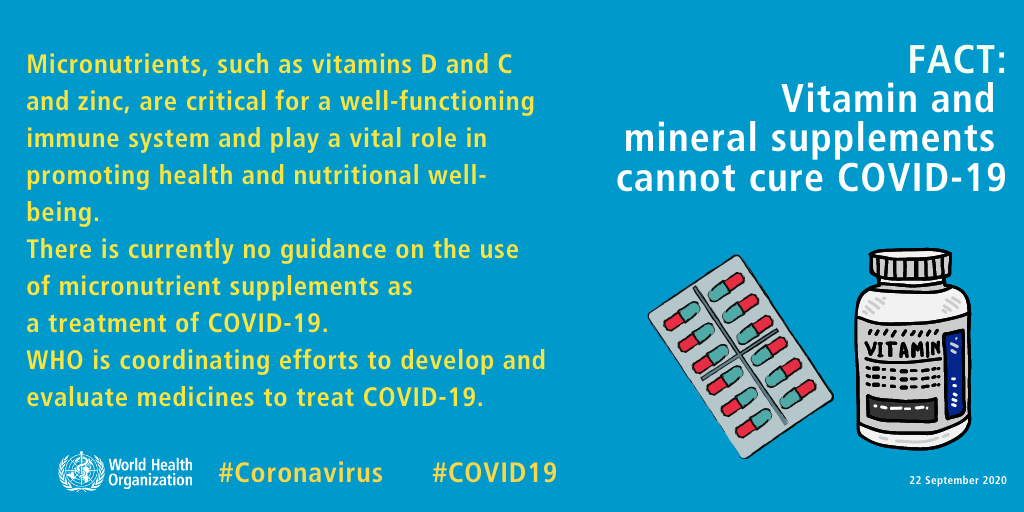A: Too early to say. But we should know more soon.
Vitamin D is a micronutrient that is present and supplemented in food, taken as a supplement, and made when the skin is exposed to ultraviolet rays (UV). It helps to keep bones growing and prevent them from breaking down. Vitamin D is also thought to regulate the immune response – this has previously been studied in people with autoimmune diseases and in respiratory illnesses other than COVID-19. Vitamin D levels are measured by the active form of Vitamin D in the bloodstream (25-hydroxyvitamin D)-levels less than 30nmol/L are generally accepted to be low/insufficient.
A recent population based study suggested an association between low Vitamin D levels and increased risk of infection with COVID-19. However, another population based study in the UK found that there was no association between measured Vitamin D levels and COVID-19 infection that could be demonstrated in the data. In the U.S., a University of Chicago study of 489 hospitalized patients demonstrated a similar effect; patients with low Vitamin D status were more likely to test positive for COVID-19. Similarly, an Iran study of 235 hospitalized patients suggested that low Vitamin D levels were associated with more severe illness in patients with COVID-19. However, these studies were observational and do not demonstrate that low Vitamin D levels cause severe COVID-19. It is important to note that in the mentioned studies, Vitamin D levels were determined from most recent levels documented and data came from hospital and/or other records. As the authors themselves indicate, low levels of Vitamin D are also present in many conditions associated with increased risk of COVID-19 infection such as diabetes or increased age, which confuses the picture.
The bottom line: In order to determine if Vitamin D supplementation decreases risk of infection with COVID-19 and severity of illness, well designed randomized controlled trials are needed (RCTs). Dr. David Meltzer of the University of Chicago is one of the strongest advocates of this message. While there has not been an RCT yet, there is a recently initiated trial examining the role of Vitamin D in preventing household transmission of COVID-19 infection, set to have data available in early 2021. Another consideration is that there is not guidance of dosing on Vitamin D for immune system function (for bone health, typical dosing should be 1.000IU-2.000IU daily not to exceed 4.000IU daily). It is important to note that while few studies have examined high dose Vitamin D in hospital patients with severe illness (without conclusive results) excess dosing of Vitamin D can be harmful to the health and is not recommended.
For now, Vitamin D may be suitable for your specific condition if recommended by your healthcare provider, but there isn’t enough evidence to suggest starting supplementation to prevent COVID-19 infection. Continued public health measures, including our #StaySMART guidelines, are important to controlling the pandemic and protecting yourself from infection with COVID-19.
Stay Safe. Stay Sane.
With love,
Those Nerdy Girls
And if you are looking for a few more visuals and brief explanations: here is a nice and clear explainer on Vitamin D and the role in COVID-19; a brief article on Vitamin D supplementation; and a longer review of current scientific evidence. The first two are written for a general audience.



